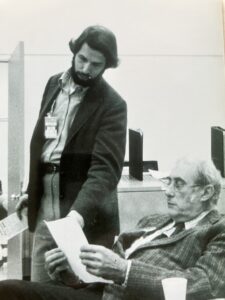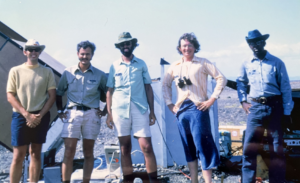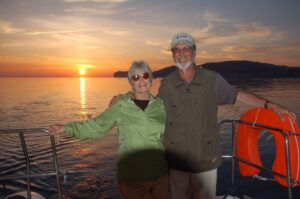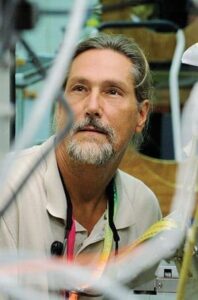Johns Hopkins UniversityEst. 1876
America’s First Research University
Joan Feldman fondly recalls the early days of her husband’s career as a professor at Johns Hopkins. When 28-year-old astronomer Paul Feldman arrived on campus in late 1967, he was both eager and a bit naïve.

“He was asked to teach in the night school, so he did,” Joan says. “Thinking this was just part of his regular duties, he was shocked when he received an extra paycheck in the departmental mail.”
Throughout the next half-century, Feldman would become a cornerstone of Hopkins’ William H. Miller III Department of Physics & Astronomy, serving as department chair from 1996 to 2001. He spearheaded a pioneering sounding rocket program that collected data from the upper atmosphere. Equipped with sophisticated spectrometers to measure light, his team developed rockets designed to analyze the chemical composition of the atmosphere. Notably, they even deployed a spectrometer on Apollo 17, the last mission to the moon, and conducted groundbreaking research on comets and other celestial bodies before his retirement as tenured faculty in 2010. Though officially retired, he continued his research until his death in 2022.
“He was brought up very conservatively to not take risks. I think somewhere in his heart of hearts, he wanted to,” Joan says. “So he went into a field that every time that rocket went up, there was a 50% chance it wouldn’t work. He built risk-taking into a career.”

Throughout that career, Feldman trained and mentored aspiring astronomers, instilling in them the same spirit of exploration. Before his passing in 2022, he launched an idea for a new initiative — the Paul D. Feldman Fellowship in Far Ultraviolet Spectroscopy from Space.
Though Feldman’s family acknowledges that ultraviolet (UV) spectroscopy — a method for analyzing materials based on their interaction with UV light — UV light might not be comprehensible to the average individual, it was integral to his life’s work and to future discoveries in his field of expertise. He found profound meaning in mentoring students passionate about this area.
It wasn’t until Feldman’s passing that his family learned how meaningful he had been to his students, as well.

“One of his students wrote a letter that brought me to tears,” Joan recalled. “She said ‘he never put me down’ and that he was like a father to her. [Paul] was very, very supportive in a very quiet way.”
Joan and Paul raised two daughters, Marian and Katherine. Marian Feldman, now the W.H. Collins Vickers Chair in Archeology and professor in the departments of History of Art and Near Eastern Studies at Hopkins, was equally surprised by the influence her father had, especially on young women navigating a male-dominated field.
“One of his graduate students told me he’d talk about his two daughters and how proud he was of us,” Marian says. “She felt like he wanted the same opportunities for his graduate students. He thought, ‘If this was my daughter in this position, I would want to support this person.’”

The lasting impact Feldman had on his students is now a vital part of his legacy at Hopkins.
The Paul D. Feldman Fellowship in Far Ultraviolet Spectroscopy from Space helps both undergraduate and graduate students advance their careers in a challenging field, explains Stephan McCandliss, research professor and director of the Center for Astrophysical Sciences. McCandliss began working alongside Feldman in 1988.
“Fellowships are a way to support people,” he notes. “You need to have experience with math and science. But there are also mechanical and electrical aspects, and vacuum system back steps, fluids, and pneumatics. Then there are interpersonal skills associated with assembling a team, interacting with people, and writing copy.”
While the Feldman family supports the fellowship, much of its initial funding came from grateful former students and colleagues.
“It’s a lasting piece of his own larger community,” Marian says. “We’re all so excited there will be students who will continue to benefit.”
Topics: Alumni, Faculty and Staff, Krieger School of Arts & Sciences, Research, Students, Fuel Discovery, Support Scholars